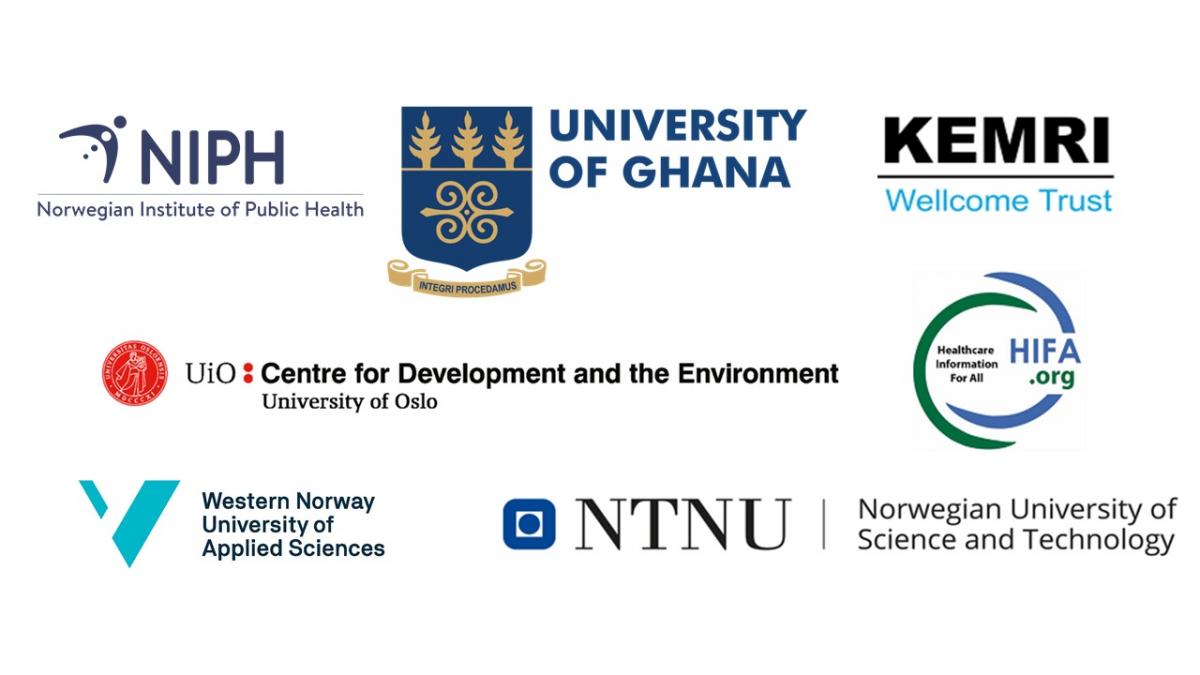
HIFA is delighted to be contributing to a major research project: Supporting inclusive and accountable health systems decisions in Ghana and Kenya for universal health coverage (SUPPORT-SYSTEMS). The project is a collaboration between the University of Ghana, the Kenyan Medical Research Institute (KEMRI), the University of Oslo, the Norwegian Institute of Public Health, the Western Norway University of Applied Sciences, the Norwegian University of Science and Technology and the Healthcare Information for All (HIFA) global forums.
This 3-year project will explore the question ‘How can decision-making processes for health systems strengthening and universal health coverage be made more inclusive, responsive and accountable?’ We will focus on the extent to which actively involving civil society voices and other stakeholders can humanise decision-making processes for UHC and promote equity. Our project is situated within the discourses around complex policymaking processes for health systems, informing these processes with evidence, and fostering civil society’s agency and participation within these processes.
We will start the project with a co-produced global systematic review with the tentative title: ‘How does civil society actors’ use of evidence contribute to inclusive and accountable decision-making for universal health coverage? A qualitative evidence synthesis’. HIFA has been invited to help with this, thanks to our wide reach (>20,000 members in 180 countries) and the diversity of our members (health professionals, civil society, policymakers, library and information professionals, publishers...).
Our first responsibility is to plan an in-depth thematic discussion on the HIFA forums in May/June 2022. The discussion will be quided by the following questions:
- What does civil society participation in health policy mean and why is it important to have civil society participation in health policy processes?
- Have you ever participated, either through a civil society organization or as an individual, in health policy processes at a national or sub-national level? What was your experience?
- Can you share examples of the role of CSOs in policymaking at national or sub-national levels?
- What do you think are the different types of evidence that civil society can provide, that otherwise would not be considered? What are the main drivers and barriers to uptake and use of such evidence?
- From your perspective, what are promising practices for creating greater space for civil society participation in health policy processes and for using evidence from civil society more effectively to improve health policymaking for UHC at national and global level?
We invite expressions of interest to join the new HIFA working group that will plan and implement the discussion. Please email: neil@hifa.org
If you are not already a HIFA member, you can join here
More information about the overall project can be found here on the Norwegian Institute of Public Health website.

